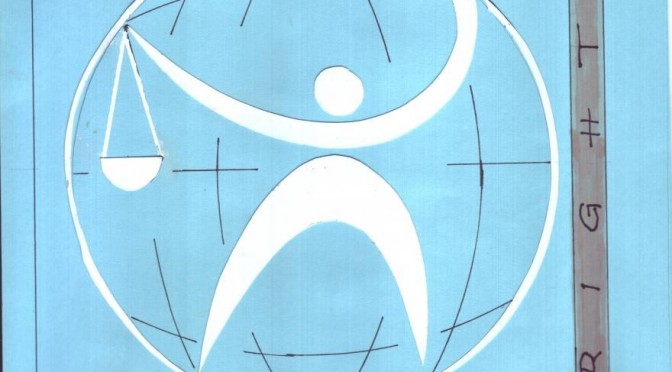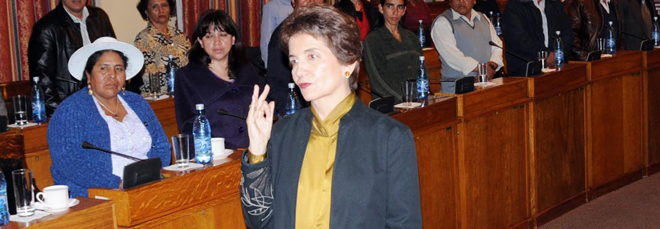Reflecting on the controversy surrounding the Palestinian bid for statehood, Richard Falk neatly subverts the opening words of the UN Charter, “we the people,” as having always surrendered to “we the governments,” and, in the modern era of American empire, “we the hegemon.”
This may well be true. The UN Security Council (UNSC), in particular, is viewed in Washington as a vehicle for hegemonic ambitions—to be indulged when it serves its purpose and vetoed and sidelined when it does not. Unfolding events at the UNSC, reportedly due to vote on the Palestinian resolution on November 11 but now postponed perhaps indefinitely, do much to affirm this assessment.
But what are those hegemonic ambitions? Prominent moderate and more conservative thinkers are struggling to answer this central question, with experts of diverse political stripes expressing concern at the political fallout of Israeli and US belligerence towards the Palestinian bid. As Washington Post columnist Thomas Friedman reports: “I’ve never been more worried about Israel’s future…”
The difficulties encountered by the Obama administration in pursuing a policy deeply at odds with much of the international community in the “Global South,” and the possible costs to the US and its regional allies and clients—both foreseeable and unintended—of opposing the largely symbolic Palestinian bid at the UN, certainly raise the question: what is the payoff?
The default position of many commentators is to point to the inordinate influence of the Israeli lobby on domestic politics in Washington, especially as the 2012 election year approaches. This would appear to be borne out in a recent opinion poll, which suggests that a majority of Americans actually support the Palestinian resolution. But is the Israeli lobby really powerful enough to “force the [Obama] administration to defend Israel at the U.N., even when it knows Israel is pursuing policies not in its own interest or America’s”?
Reflecting growing alarm in Washington, US officials have embarked—some would say rather belatedly—on a concerted push to derail or pre-empt a vote at the Security Council, without success. Diplomatic entreaties in recent weeks have given way to last ditch efforts at arm-twisting as momentum has built around the Palestinian bid. However, the US has struggled to get a grip on the situation.
The US ambassador to the UN, Susan Rice, has signaled that there is “no greater threat” to US support and funding of the UN than the prospect of Palestinian statehood being endorsed by member states. UNESCO has become the first test of US resolve, with the organization voting to recognize Palestinian statehood (a vote not subject to US veto).
Reaction has been swift and decisive. The US withheld $50 million in funds from the organization, sending a clear signal to the broader UN community. For its part, Israel has responded to the UNESCO vote by speeding up settlement expansion in the West Bank and Jerusalem.
Neither action is likely to be looked on kindly by allies or adversaries; indeed, the White House and the British Foreign Secretary have expressed deep disappointment in the Israeli response. This provocative move by Israel further undermines the already tenuous credibility of US insistence on a negotiated settlement.
This round of retribution follows the earlier punitive decision by the US Congress to freeze $200 million of economic aid destined for the Palestinian Authority. That move drew criticism from across the political divide, including from Hilary Clinton, who voiced concern that it will provide an opening for radical groups to fill the vacuum.
Unable to deter the Abbas administration, US attention has turned to the Security Council. With the majority of UNSC members having signaled their voting intentions, diplomatic maneuvering has focused on those few remaining undeclared members, Gabon, Nigeria, and Bosnia-Herzegovina, in an attempt to secure the nine votes necessary to avoid a US veto.
At the time of writing, this approach appears to have worked. With Britain and France declaring their intention to abstain – despite the latter voting in favor of Palestinian statehood at UNESCO – and Colombia, Portugal, Bosnia-Herzegovina and Germany expected to oppose the resolution, the Palestinian leadership can count on only eight votes in support (China, Russia, Brazil, India, South Africa, Lebanon, Nigeria and Gabon).
The costs to the US of checking Palestinian ambitions may be significant, in so far as doing so further diminishes US influence in the Middle East. US foreign policy commentators have singled out repression of Shia minorities by US client regimes and the enduring plight of the Palestinians as the two key issue areas undermining US efforts to win hearts and minds in the region.
Only last year, Barack Obama declared his ambition that a negotiated agreement “will lead to a new member of the United Nations.” However, the apparent inability of the US to halt Israeli settlement activity, combined with the revelations of the Palestinian papers, which documented Israel’s rejection of historic concessions by the Palestinians, have left many observers deeply disillusioned about the prospects for peace through negotiation and the sincerity of Obama’s rhetoric.
Stalwart US allies in the region have counseled the US to support the Palestinian bid. Saudi Arabia has declared that its “special relationship” with the US risks becoming “toxic.” Recent reports of Saudi Arabian nuclear ambitions indicate the regime’s growing sense of vulnerability. Similarly, Jordan has expressed deep concern at the prospect of the Palestinians being “really short-handed on this issue.” Turkey has also signaled its intention to defy US entreaties.
In the background lies the bigger uncertainty for the US regarding the growing influence of Iran, its alleged development of nuclear weapons, and the continuing fallout of the Iraq invasion. The refusal by the Iraqi government to allow continuation of a US military presence (under current immunity laws) after 2011 was widely reported as a major diplomatic and military rebuff.
Against this backdrop of deep uncertainty, can the US afford to further alienate the Arab world by blocking the Palestinian bid for statehood? Are the hands of the hegemon tied by the Israeli lobby? No doubt, many of those who argue that the preponderance of the Israeli lobby has forced the hand of the US are sincere.
However, to sound a more skeptical note, it is also likely that US policymakers have conducted their own risk assessment and concluded that the costs are either acceptable or largely immaterial given the country’s unrivaled hegemonic status. Some decision-makers may argue that opposition to the Palestinian bid actually serves US interests by signaling cast-iron support for Israel.
Israel is a de facto US aircraft carrier in the region—an important asset for the projection of US power by proxy. However, as part of this arrangement, Israel’s dependence on US patronage is absolute, which raises the question: is Israel really in a position to dictate terms to Washington on the Palestinian bid, or on any other issue for that matter?
As for US allies in the region, Washington may view their continued allegiance over the long term as uncertain in any case. Strongly worded support by Clinton and others for democratization in the region is likely to jeopardize relations with autocratic allies, such as the Saudi royal family.
Despite arguments to the contrary, this reading of events suggests that it is still, very much, a case of “we the hegemon”.
Published here: http://www.du.edu/korbel/hrhw/roundtable/2011/panel-c/11-2011/pegram-2011b.html





